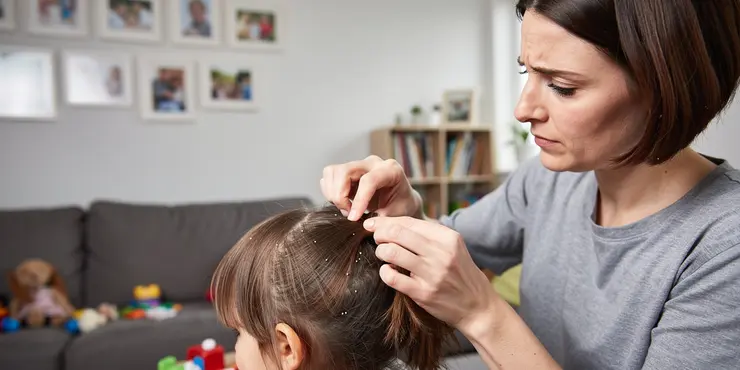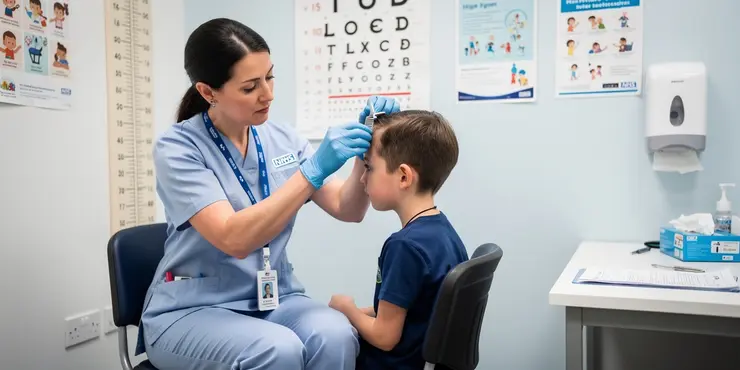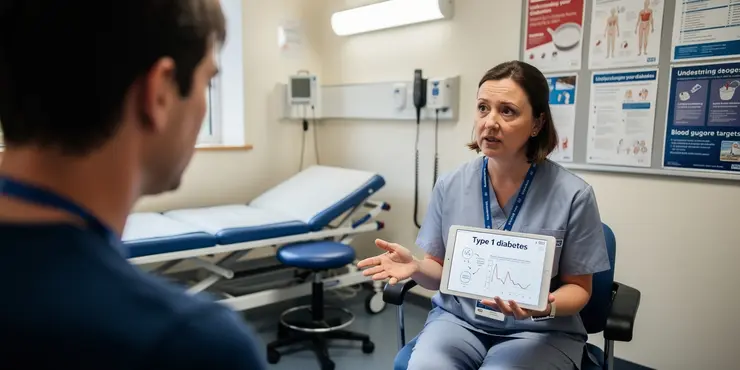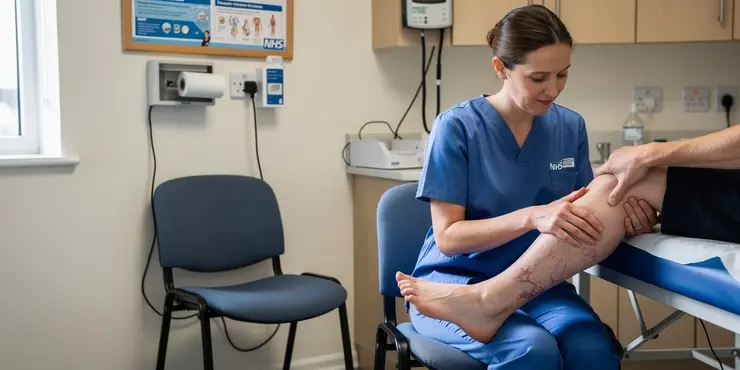
Find Help
More Items From Ergsy search
-

Are there different types of lice?
Relevance: 100%
-

What are head lice?
Relevance: 94%
-

How do lice lay nits?
Relevance: 90%
-

Can nits hatch into lice?
Relevance: 90%
-

Are nits and head lice the same thing?
Relevance: 87%
-

Can you get rid of nits and lice with the same treatments?
Relevance: 56%
-

Are nits and head-lice the same thing?
Relevance: 52%
-

Are nits contagious?
Relevance: 50%
-

Can nits survive on furniture or clothing?
Relevance: 49%
-

Do nits live off the scalp?
Relevance: 45%
-

How long does it take for nits to hatch?
Relevance: 45%
-

How do lice feed?
Relevance: 44%
-

Where can nits be found?
Relevance: 41%
-
What is the difference between type 1 and type 2 diabetes?
Relevance: 38%
-

How can you differentiate nits from dandruff?
Relevance: 38%
-

Type 1 Diabetes supporting adults to manage Type 1 diabetes
Relevance: 36%
-

Is Type 2 Diabetes hereditary?
Relevance: 35%
-
What is type 1 diabetes?
Relevance: 35%
-

What is type 1 diabetes?
Relevance: 35%
-

Are there different types of ADHD?
Relevance: 35%
-

Is Ozempic suitable for type 1 diabetes?
Relevance: 33%
-
Is there a genetic predisposition to type 1 diabetes?
Relevance: 33%
-
Can people of any blood type receive a transfusion of any blood type?
Relevance: 33%
-

Prolapse Types and Tips
Relevance: 33%
-

Can Type 2 Diabetes go away?
Relevance: 33%
-

What causes Type 2 Diabetes?
Relevance: 33%
-

Can Type 2 Diabetes be prevented?
Relevance: 33%
-

What are the symptoms of Type 2 Diabetes?
Relevance: 33%
-

Are there different types of asthma?
Relevance: 33%
-

How to manage type 2 diabetes
Relevance: 33%
-

How is Type 2 Diabetes diagnosed?
Relevance: 32%
-

What are the types of thrombosis?
Relevance: 32%
-

What are the main types of eczema?
Relevance: 32%
-

Can Mounjaro be used in type 1 diabetes?
Relevance: 32%
-

What are the types of dietary fiber?
Relevance: 32%
-

What is the role of insulin in Type 2 Diabetes?
Relevance: 31%
-

What are the types of stoma bags?
Relevance: 31%
-
What are the limitations of type 1 diabetes screening?
Relevance: 31%
-
Should I screen my child for type 1 diabetes?
Relevance: 31%
-

Are there different types of care homes?
Relevance: 31%
Introduction to Lice
Lice are tiny, wingless parasitic insects that live on the skin of their hosts, feeding on their blood. They are a common concern worldwide, including in the UK. There are different types of lice, each preferring specific hosts and residing in particular areas of the body.
Types of Lice
Human Lice
Human lice are divided into three main types: head lice, body lice, and pubic lice. Each type has distinct characteristics and habitats, despite sharing some similarities.
Head Lice
Head lice (Pediculus humanus capitis) are perhaps the most well-known type, particularly among school-aged children. They reside on the scalp and neck and attach their eggs, called nits, to individual hair shafts. Head lice are notably prevalent in crowded living conditions and among people who have frequent head-to-head contact.
Body Lice
Body lice (Pediculus humanus corporis) are similar in appearance to head lice but have different living habits. Unlike head lice, body lice live in clothing, particularly in seams, and only move to the skin to feed. These lice are typically associated with poor hygiene and are often found in situations where people do not change or wash clothes regularly, such as in situations of homelessness or conflict.
Pubic Lice
Pubic lice (Pthirus pubis), commonly known as "crabs," prefer to inhabit coarse hair, such as that found in the groin area. These lice are primarily spread through sexual contact, although they can inhabit other coarse body hair like that on the chest or armpits. Unlike head and body lice, pubic lice are not easily spread through casual contact such as sharing clothing or bedding.
Lice on Other Species
Aside from human lice, there are also lice that infest other animals. These types are specific to their host species, including lice that affect birds, mammals, and pets like cats and dogs. Each type of animal-specific lice has evolved to live on a particular host.
Conclusion
Understanding the different types of lice is crucial in preventing and treating infestations effectively. While each type of lice has specific characteristics and prefers certain habitats, they all share the need for a host on which to feed. Awareness and good hygiene practices can reduce the likelihood of infestation and aid in effective treatment. If you suspect an infestation, consulting a healthcare professional is advisable to determine the best course of action.
What Are Lice?
Lice are very small bugs that do not have wings. They live on skin and bite to drink blood. Lice are a common problem all over the world. There are different lice for different places on the body.
Kinds of Lice
Lice on People
There are three main kinds of lice that live on people: head lice, body lice, and pubic lice. Each kind looks a bit different and likes different places to live on the body.
Head Lice
Head lice are well known, especially among children who go to school. They live on the scalp and neck. They stick their eggs, called nits, to hair. Head lice spread a lot in crowded places and when people have head-to-head contact.
Body Lice
Body lice look like head lice but live differently. Body lice live in clothes, especially in seams. They only come to the skin to eat. Body lice are usually found when people don't change or wash clothes often.
Pubic Lice
Pubic lice are called "crabs" and live in thick hair, like in the groin area. They spread mostly through sexual contact. Sometimes they are in other thick hair on the body like the chest or armpits. They do not spread easily from sharing clothes or beds.
Lice on Animals
Other animals can also have lice. There are special lice for birds, mammals, and pets like cats and dogs. These lice are made to live on that type of animal.
What to Do?
Knowing about lice helps us stop them and treat them quickly. Each kind of lice likes certain places but all need a host to feed on. Keeping clean and having good habits can help prevent lice. If you think you have lice, it’s a good idea to talk to a doctor for the best help.
Tips: - Use a comb to check for lice regularly. - Keep hair clean and tied up if possible. - Wash clothes and bedding often.Frequently Asked Questions
Useful Links
This website offers general information and is not a substitute for professional advice.
Always seek guidance from qualified professionals.
If you have any medical concerns or need urgent help, contact a healthcare professional or emergency services immediately.
Some of this content was generated with AI assistance. We’ve done our best to keep it accurate, helpful, and human-friendly.
- Ergsy carfully checks the information in the videos we provide here.
- Videos shown by Youtube after a video has completed, have NOT been reviewed by ERGSY.
- To view, click the arrow in centre of video.
- Most of the videos you find here will have subtitles and/or closed captions available.
- You may need to turn these on, and choose your preferred language.
- Go to the video you'd like to watch.
- If closed captions (CC) are available, settings will be visible on the bottom right of the video player.
- To turn on Captions, click settings .
- To turn off Captions, click settings again.
More Items From Ergsy search
-

Are there different types of lice?
Relevance: 100%
-

What are head lice?
Relevance: 94%
-

How do lice lay nits?
Relevance: 90%
-

Can nits hatch into lice?
Relevance: 90%
-

Are nits and head lice the same thing?
Relevance: 87%
-

Can you get rid of nits and lice with the same treatments?
Relevance: 56%
-

Are nits and head-lice the same thing?
Relevance: 52%
-

Are nits contagious?
Relevance: 50%
-

Can nits survive on furniture or clothing?
Relevance: 49%
-

Do nits live off the scalp?
Relevance: 45%
-

How long does it take for nits to hatch?
Relevance: 45%
-

How do lice feed?
Relevance: 44%
-

Where can nits be found?
Relevance: 41%
-
What is the difference between type 1 and type 2 diabetes?
Relevance: 38%
-

How can you differentiate nits from dandruff?
Relevance: 38%
-

Type 1 Diabetes supporting adults to manage Type 1 diabetes
Relevance: 36%
-

Is Type 2 Diabetes hereditary?
Relevance: 35%
-
What is type 1 diabetes?
Relevance: 35%
-

What is type 1 diabetes?
Relevance: 35%
-

Are there different types of ADHD?
Relevance: 35%
-

Is Ozempic suitable for type 1 diabetes?
Relevance: 33%
-
Is there a genetic predisposition to type 1 diabetes?
Relevance: 33%
-
Can people of any blood type receive a transfusion of any blood type?
Relevance: 33%
-

Prolapse Types and Tips
Relevance: 33%
-

Can Type 2 Diabetes go away?
Relevance: 33%
-

What causes Type 2 Diabetes?
Relevance: 33%
-

Can Type 2 Diabetes be prevented?
Relevance: 33%
-

What are the symptoms of Type 2 Diabetes?
Relevance: 33%
-

Are there different types of asthma?
Relevance: 33%
-

How to manage type 2 diabetes
Relevance: 33%
-

How is Type 2 Diabetes diagnosed?
Relevance: 32%
-

What are the types of thrombosis?
Relevance: 32%
-

What are the main types of eczema?
Relevance: 32%
-

Can Mounjaro be used in type 1 diabetes?
Relevance: 32%
-

What are the types of dietary fiber?
Relevance: 32%
-

What is the role of insulin in Type 2 Diabetes?
Relevance: 31%
-

What are the types of stoma bags?
Relevance: 31%
-
What are the limitations of type 1 diabetes screening?
Relevance: 31%
-
Should I screen my child for type 1 diabetes?
Relevance: 31%
-

Are there different types of care homes?
Relevance: 31%


